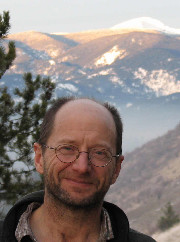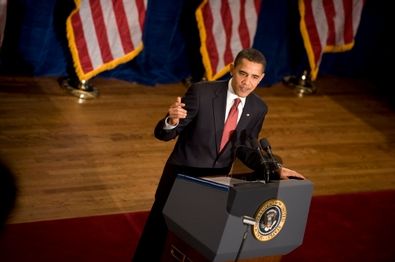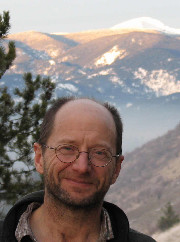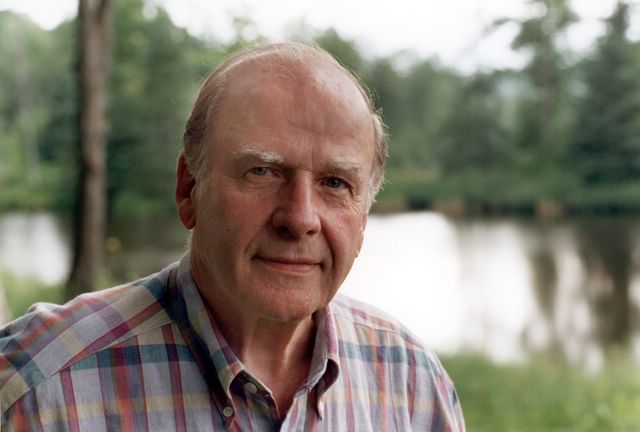 Rick BassHaving elected Team Obama, and seen a few months of promising leadership, have we achieved Mission Accomplished with regard to righting the environmental wrongs of the Bush administration? You don’t hear the question being voiced so much as instead sense it infiltrating, with an air of unearned relief. Everywhere, after the majestic battle of the long campaign, there is hope, and the feeling that one is no longer a prisoner in one’s own country. It’s sweet. But it’s slightly misplaced: Barack Obama’s got the bully pulpit, but he’s still just one man. It remains to the 290 million of us who are the muscle, the fuel to propel him in his efforts to reconnect and repair a fragmenting and warming world. So far we’ve all been pretty much mostly talk, himself included. You don’t back off and say Mission Accomplished on your first day of work in a new job: and I am not referring to his first day, or new job, but ours.
Rick BassHaving elected Team Obama, and seen a few months of promising leadership, have we achieved Mission Accomplished with regard to righting the environmental wrongs of the Bush administration? You don’t hear the question being voiced so much as instead sense it infiltrating, with an air of unearned relief. Everywhere, after the majestic battle of the long campaign, there is hope, and the feeling that one is no longer a prisoner in one’s own country. It’s sweet. But it’s slightly misplaced: Barack Obama’s got the bully pulpit, but he’s still just one man. It remains to the 290 million of us who are the muscle, the fuel to propel him in his efforts to reconnect and repair a fragmenting and warming world. So far we’ve all been pretty much mostly talk, himself included. You don’t back off and say Mission Accomplished on your first day of work in a new job: and I am not referring to his first day, or new job, but ours.
The unspoken idea that by electing Obama we’ve won the battle, and the similar idea that a ceremony such as Earth Day is outdated, a hippie-like vestige, reminds me of the extractive industries’ mantra — decades old, now — that “every day is Earth Day.”
Who are we kidding? Giving up on or slacking off on Earth Day is like deciding not to celebrate your grandmother’s birthday any more simply because she’s gotten older, or has a cough.
Carbon dioxide concentrations are nearing the point-of-no-return of 360 parts-per-million — at some point beyond that, the eggshell of a globe we call home might ignite into a giant ball of flame, simply from the belch of one more cow — and yet even if we can postpone that blinding ignition, it’s predicted that as many as half of the world’s species will be getting off the good ship Eden within our lifetimes, and there is no one who can promise us that we ourselves will not be among that one-in-two.
Make no mistake, he is smart; but the power is in us, far more than in him. We put him there. We had a choice not to, but we did. He worked all his life to be in the position where we could give him that power, but it was our passion and despair and hope, not his, that lifted him up and put him where he needs to be at the time he most needs to be there.
Now we go to work, in the first year of our new lives, at our new job, at rebuilding a republic that has been built from the very beginning, in part, on a faulty foundation: a land stolen from the indigenous people who had lived on it for ten thousand years or more, and developed on the backs of slaves, and with the we-the-conquerors for the most part choosing, whenever it was time to make a hard choice, the poisoning of sky and soil and water over the discipline and sustainability of regulation.
The only cornerstone of that foundation that was set down in good shape, and which remains in good shape, is the cornerstone of passion — the passion with which we began this enterprise — and we have to hope and continue to believe that will be enough to fuel the repair of the other three faulty cornerstones. And what a country it was at the beginning, then, even with but one firm cornerstone of true integrity set down upon that rich land, and what a country it remains, even after so much sorrow and so many wrongs. If we could accomplish what we did in November on one cornerstone, imagine the nation we can be when our cornerstones are finally set foursquare.
He’s just one man, just a guy. He’s not a king. He needs our support and cooperation more than ever, and the new nation –and I believe in my heart that something has changed, something magnificent, and that we are once again a new nation — needs to honor and revere our traditions of worth and integrity, deeper institutional traditions such as Earth Day, more than ever, fledgling though those traditions still may be.
It’s my own hope that we’ll still be celebrating Earth Day in the United States two hundred years from now: though what that might look like, I can’t imagine, can only hope and believe that regardless of the travails through which we will pass to get there, it will be something fine, something glorious, something utterly enduring, forged from the rigors of the battle. Something we can be proud of. We need it more than ever. In the old days it was a celebration. Now it is the thing which, if we practice adherence and focus, can save our own lives, as well as the lives of many others.




